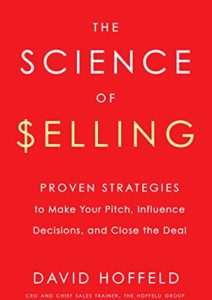In business, the quality of your decisions will ultimately determine the levels of success you achieve. So how can you improve your decision-making ability? The good news is that there are now decades of scientific research that have revealed how the brain forms judgements. When you apply these findings you will find that your capacity to make effective decisions that you follow through on will improve dramatically. Here are three of these science-backed strategies.
#1: Avoid Sunk Cost Fallacy
Imagine the following scenario: You’ve poured a lot of time and resources into a new initiative, but the data suggests that it’s not working and you should change course. Even though you know that you should abandon the project, you don’t want to. You’ve already invested so much into it, your natural tendency is to ignore the risks and see if you can turn it around. Yet, this could have catastrophic consequences for your business, so what should you do?
To determine the right course of action, it is imperative that you first recognize what is going on. The situation I just described illustrates a powerful bias known as sunk cost fallacy. What is sunk cost fallacy? It’s the tendency to continue an endeavor because of previously invested resources. So, it’s making a decision looking backwards, rather than to the future. Once you realize how much sway this bias has and the inherent danger of it, you’re able to see more clearly and summon the logical thinking necessary to make decisions based on the future, rather than the past.
#2: Use Action Triggers
In behavioral science there is something called decision fatigue, which says that after making many decisions in a day, you become mentally tired and become more likely to make poor decisions. So what can you do to counteract this? You pro-load your decisions by using what behavioral scientists call action triggers.
These are pre-established decisions that link a behavior with its environment. It’s a when that happens, then I do this mentality. So for example, if I want to lose weight, I decide that on my way home from the office every day, I will stop at the gym. Or if I want to read a book a week, then I block of 20 minutes each day on my schedule that I devote to reading. So when it is 3:10pm in the afternoon, I have an appointment to read for 20 minutes.
The idea is simply to connect the behavior (going to the gym) with an external reference (driving home from work). This will pass the control of the behavior to an environmental stimulus, which will also improve the likelihood that you’ll get in the habit of stopping by the gym on your way home from work.
If action triggers sound simple, it is because they are. Nevertheless, they have been proven to have an enormous impact on behavior. In fact, numerous studies have verified that participants who used action triggers were 74% more likely to complete the desired task.
#3: Guard Against Blind Overconfidence
Believing in yourself and your company are hallmarks of successful people. However, there is compelling research that reveals when confidence evolves into reckless overconfidence it produces faulty assessments, unrealistic expectations and corrupts decision-making.
One way to make sure overconfidence doesn’t corrupt your decision-making is by asking the right questions. For instance, one study found that asking reflective questions like, “How will I do this?” or simply, “Will I?” when attempting challenging tasks makes it more likely you’ll identify a solution quickly.
This interrogative self-talk guides you away from thinking that you will succeed and toward considering how you’ll succeed. That can defuse overconfidence and stimulate your problem-solving abilities. In contrast, someone who’s overconfident will look at the same situation and blindly declare, “I will do this.” While that statement assumes everything will work out fine, the questions force you to actually figure it out. And that’s often the difference between finding a solution quickly or not.
Following these three science-backed suggestions will help you make productive decisions and set you up for greater levels of success.










